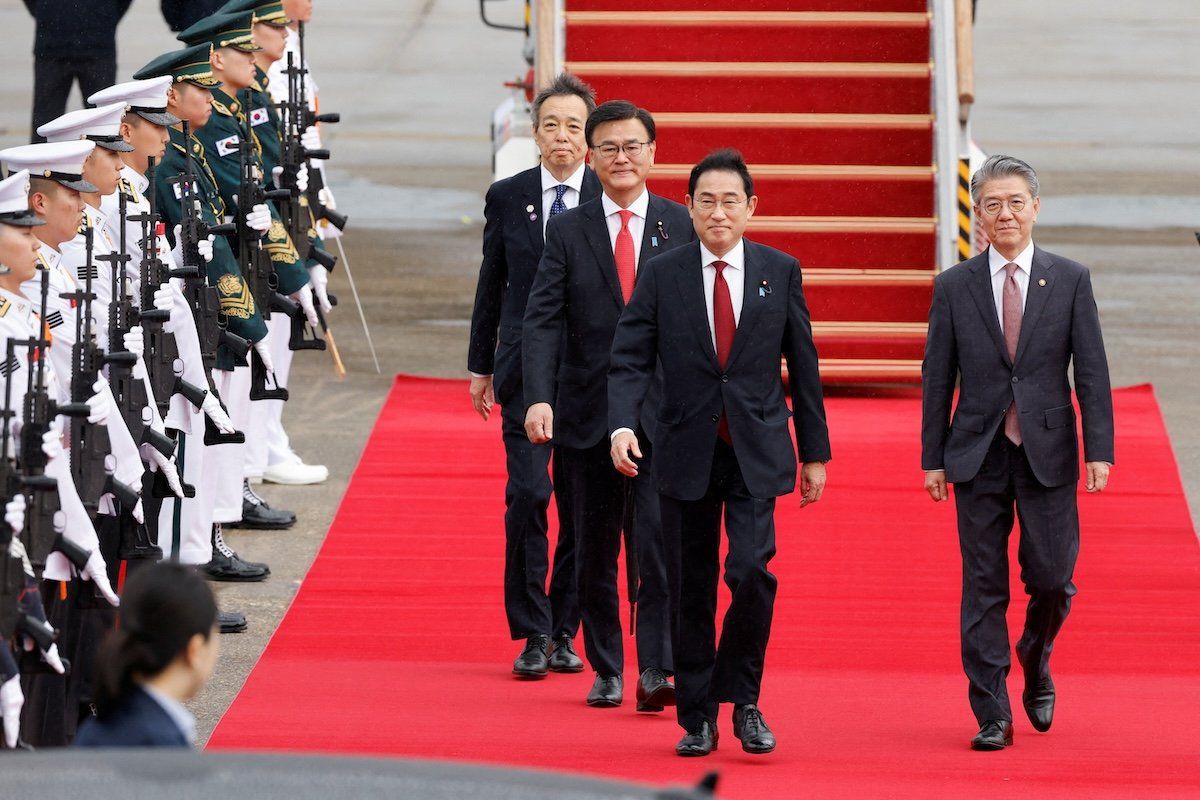South Korean President
Yoon Suk Yeol, Japanese Prime Minister
Fumio Kishida, and Chinese Premier
Li Qiang met in Seoul this weekend to discuss economic cooperation – and avoid controversy.
Their ninth trilateral summit, the first since 2019, sidestepped contentious topics like Taiwan, North Korea, and export controls, and focused on protecting supply chains, promoting trade, and addressing ageing populations and emerging infectious diseases.
“The three nations agreed to expand practical cooperation in a way their people can feel its benefits,” Yoon said during a joint news conference, announcing 2025 and 2026 as the “years of cultural exchanges” among the three countries.
China typically sends its premier, not the president, to these meetings, which dictates a focus on economic rather than security issues, but the elephants were still in the room. Mere hours before the summit started, North Korea announced a plan to put a second spy satellite in orbit, drawing condemnation from Japan and South Korea. After the meeting, Seoul conducted an airstrike drill as a warning to Pyongyang.
During the talks, Li expressed uneasiness about Japan and South Korea’s expanding security cooperation with the United States, while Kishida cautioned Li about China’s belligerence in the South China Sea. According to David Boling, a Eurasia Group analyst, “China is Japan’s biggest security threat, yet China is also Japan’s biggest trading partner. Tokyo is working mightily to balance those competing priorities.”
But that won’t be easy. In the view of Jeremy Chan, an East Asia analyst with Eurasia Group Japan, “Common economic interests remain the ballast that holds trilateral cooperation together, but growing misalignment over regional security related to North Korea, Taiwan, and the South China Sea – as well as rising US-China competition – will prevent closer economic cooperation among the three countries.”
Meanwhile, just across the East China Sea, a US congressional delegation met Taiwan's new President Lai Ching-te on Monday, reaffirming Washington’s “strong support of this beautiful island.”Michael McCaul, head of the House Foreign Affairs Committee, condemned China's recent military drills and pledged to expedite Taiwan's delayed US weapons purchases, while China’s Foreign Ministry said it “firmly opposed” the visit and had lodged stern representations with Washington.
We’ll be watching to see whether the visit speeds those weapons systems to their destination – or provokes more military maneuvers from Beijing.
